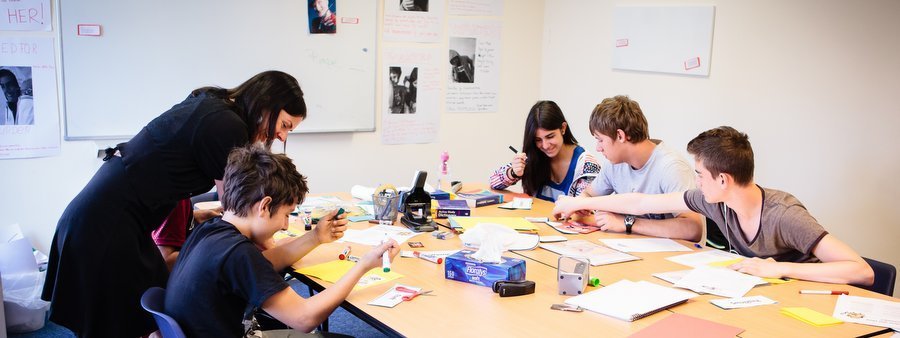
Learn English in Ireland
Ireland is a vibrant and welcoming country that offers a rich environment for those looking to learn English in Ireland while immersing themselves in a new culture. For newcomers, developing strong English language skills and understanding local customs are vital for social integration, education, and employment. With excellent language schools, community support, and cultural activities, Ireland is an ideal destination for English learners worldwide.
Why Learn English in Ireland
Choosing to learn English in Ireland is about more than just studying the language. It opens the door to new friendships, career opportunities, and a deeper connection to Irish life. As English is the main language used in everyday communication, education, and business, proficiency is essential for navigating daily activities like shopping, using public services, or attending appointments. Employers and universities also expect a strong command of English, making it a valuable asset for both short- and long-term residents.
Types of English Language Courses
There is a wide variety of ways to learn English in Ireland. Language courses are available in private language schools, colleges, universities, and community centres. These include general English programmes, exam preparation (such as IELTS and Cambridge English), business English, and academic English. Students can choose intensive, part-time, or evening classes to suit their schedules and goals. Placement tests are typically used to match students with the appropriate level based on the CEFR (from A1 to C2).
Reputable schools such as IBAT College Dublin, the Irish College of English, and Galway Cultural Institute offer high-quality instruction and personalised attention. With small class sizes and a supportive atmosphere, learners can progress quickly and confidently.
Practical English for Everyday Life
One of the key advantages of choosing to learn English in Ireland is the emphasis on real-world language use. Courses often include lessons on tasks such as opening a bank account, preparing a CV, visiting a doctor, and handling everyday conversations. These practical lessons help learners apply their English immediately and with confidence. Many schools provide access to digital resources, homework support, and regular progress testing to ensure continued development.
Community groups and libraries often offer informal learning opportunities like conversation classes and language cafés, which are particularly helpful for those on a limited budget or seeking extra practice.
Cultural Activities and Language Use
To learn English in Ireland is to also participate in its vibrant culture. Language schools often organise social events, cultural excursions, and group activities that allow students to use English in relaxed, authentic environments. These may include trips to museums, traditional music nights, festivals, and sporting events. Such activities build confidence, create social bonds, and deepen cultural understanding.
Support in Higher Education
For students entering Irish universities and colleges, English language support is widely available. Programmes may include pre-sessional English, academic writing workshops, and ongoing language assistance. These services help international students meet academic standards and fully engage with course content. Many institutions also provide orientation programmes and peer mentoring to support integration.
Learning Irish and Embracing Multilingualism
Although most learners focus on English, many also take the opportunity to explore the Irish language (Gaeilge), especially when living in Gaeltacht areas or enrolling children in Irish-language schools. Knowing a few basic Irish phrases is appreciated and can enhance one’s connection to Irish heritage and festivals such as Seachtain na Gaeilge.
Ireland is home to many multilingual communities. Language exchanges, community centres, and meetups create spaces to share experiences, practise English, and build intercultural friendships. These opportunities are particularly valuable for learners who want to improve their conversational skills in a social setting.
Community Integration and Participation
To fully benefit from the decision to learn English in Ireland, active participation in the community is essential. Understanding social norms—such as politeness, queuing, and casual conversation—helps newcomers feel more comfortable and confident. Community centres often provide integration supports, including language classes, cultural workshops, and access to local information. These centres serve as hubs for connection, learning, and support.
Volunteering and Everyday Interaction
Volunteering is another excellent way to learn English in Ireland. Whether helping at a charity, coaching a sports team, or joining an environmental project, volunteers improve their language skills while contributing to the local community. This experience can also provide valuable references and work experience.
Outside of formal learning, joining local clubs, sports teams, or hobby groups provides countless opportunities to practise English and build relationships. From music and dance to football and art, Ireland’s community life is diverse and accessible.
Support Services and Resources
Newcomers who want to learn English in Ireland benefit from a wide range of support services. Citizens Information Centres, NGOs, and migrant organisations offer practical guidance on housing, healthcare, education, and legal rights. Libraries provide access to books, internet, and free events, while government initiatives support intercultural awareness and inclusion.
Events such as Pride, Chinese New Year, and Africa Day celebrate Ireland’s cultural diversity and offer newcomers a chance to connect and share their backgrounds.
Tips for Success
- Practise English every day in real-life settings.
- Attend cultural and social events to learn through experience.
- Join local clubs or volunteer to build skills and friendships.
- Explore Irish media to improve listening and comprehension.
- Don’t be afraid to make mistakes—most people are patient and supportive.
Conclusion
Choosing to learn English in Ireland is a step toward opportunity, connection, and personal growth. Ireland’s excellent language education, cultural richness, and welcoming communities make it an ideal place to build language skills and integrate into society. Whether through formal study, community involvement, or everyday interactions, learners gain much more than language—they become part of a dynamic and inclusive culture that values diversity and connection.
- See also: Third Level Education in Ireland